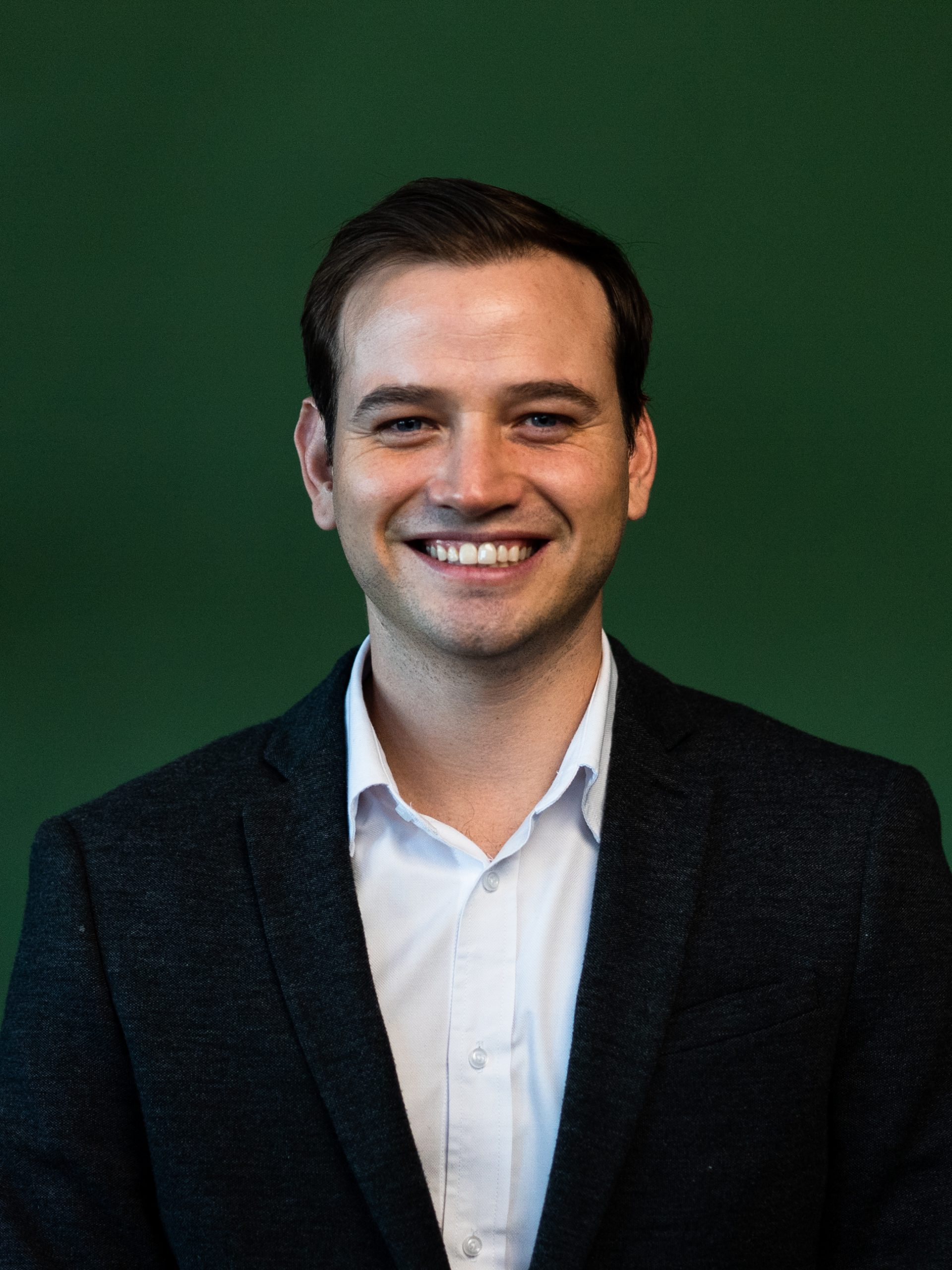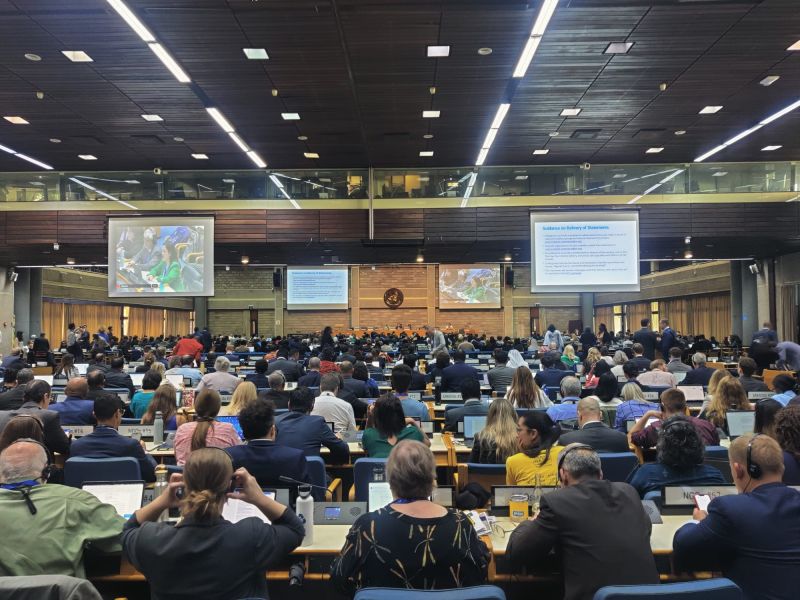
Alan Encinas
Technical Programme Manager, ISWA
From the 13th to 17th of November, ISWA headed to Nairobi to participate in the third session of the intergovernmental negotiating committee to develop an international legally binding instrument to end plastic pollution.
The third session focused on bringing forward the negotiations and this time, with a zero draft text that national delegations had to examine and negotiate upon.
The draft text had been developed by the INC secretariat using as input the agreements on substantial issues agreed in the last session in Paris as well as the intersessional input by delegations.
Observer organisations also had a certain visible influence in the zero draft text and the journey towards the instrument hit a crucial phase. Delegates grappled with the complexities of aligning diverse global interests and perspectives. Key points of contention included the treaty’s scope, approaches to the production and consumption of plastic and trade implications.
The process will require plenty of time and attention to intersessional work to prepare the revised version of the zero draft that should be addressed in INC-4 in Canada.
The INC in Nairobi was full of interest and engaging conversations with different stakeholders.
On the weekend before the official start of the event, important observers’ organisations hosted side-events to bring light to the issues important to discuss.
Specifically, I had the opportunity to attend the side events of the Business Coalition for a Global Plastics Treaty convened by EMF and WWF and the PREVENT waste alliance convened by GIZ.
The two organisations have a different profile but an equally important stake in the treaty. The business coalition has the objective to develop consistent policy insights, convene a group with shared high ambitions towards the treaty coordinate advocacy efforts and build confidence in the business community towards the treaty. They advocate for a level playing field for the industry and value chain of plastics to be ready and able to serve the high ambition of the treaty. On the other hand, PREVENT is a more overarching partnership bringing together actors from the private sector, NGOs and governments to share knowledge on circular economy, link different perspectives, develop scalable solutions and help shape international guidelines and standards.

The events organised by both organisations were an excellent forum to discuss important topics such as cross-value chain business engagement, EPR, plastic pollution control, microfinancing, informal sector inclusion, etc. as well as networking opportunities.

As the official process started at the beautiful UN compound the plenary became the center of the event. High-level officials, delegates, and UN executives gathered to launch the event that also had the welcoming of the President of Kenya William Ruto.
The plenary crowd split into contact groups that had the mandate of negotiating the different elements in the zero draft, means of implementation and as well as other element not mentioned in the draft but marked as important.
In the rooms, negotiators were engaged in long day (and sometimes night) sessions to bring forward the needs and wishes of their diplomatic missions in this process. Many of the usual geoeconomic and geopolitical dynamics that the current multipolar world faces were also showcased in this process.
The wicked problem of plastic pollution might not be directly related to the particular style of governance each country perceives as adequate, but the process of negotiation does. This has been reflected in the different positions the coalitions within INC have taken; The “high ambition coalition”, the “like-minded group”, the “African group”, “GRULAC”, etc have different perceptions of reality and visions of what a sound treaty looks like, and this has been reflected in the process.
Given this context, it results in special interest and importance to bring forward sound science into the process and provide the necessary technical input. ISWA as well as many other organisations have tried to do this by producing knowledge products, engaging with delegations, and exchanging with each other.

On this note, I had the opportunity to meet with IFIs, NGOs, National Delegations and alliances of waste pickers. All key stakeholders in the process but with a very different set of needs and views. Nonetheless, all of them seek to bring forward an ambitious instrument that can be implemented locally.

Many side events at the INC are also a great opportunity to understand what is developing as a potential approach to the treaty as the INC organises leading organisations to collaborate in bringing forward their perspectives. Many interesting takes on mobilising resources, potential governance arrangements for the new instrument, science, and as well as just transition are brought forward. However, I would like to see more dialogue and knowledge on the role of municipalities and local authorities as well as the synergies the instrument can create with other processes such as the COP and biodiversity conventions.
In my experience during INC, the solid waste and resources sector has had an increased attention but it seems still difficult to grasp what is the level of commitment of governments to bring integrated sound waste and resources management high in the agenda. Some claim that doing this will “dilute” the mandate of the process. I personally disagree with this take as from my experience; it is not possible to cherry-pick plastic from the waste management system. The infrastructure is complementary and actions on the whole chain can only increase and improve the possibility of managing plastic waste soundly.
ISWA has a high level of ambition and has also promoted interventions in the value chain of plastic and following the waste hierarchy; where waste reduction is the first and most desired step. However, according to the publication “Towards Ending Plastic Pollution by 2040” commissioned by the Nordic Council of Ministers and developed by Systemiq even in the most ambitious scenarios of waste reduction, there will be 301 million tonnes of plastic produced then and there will be the need of managing the end of life of this avoiding leakage and pollution.
Integrated waste management remains the key intervention to addressing the issue of plastic waste leaking into the environment. Increasing waste collection, sorting, management, recycling, and the development of environmentally sound final sinks for those plastics not able to be recycled is crucial to ending plastic pollution.


ISWA will continue the engagement informing the process and bringing the perspectives of our members for a sound instrument and prepare to head to Canada for the next session in April. Intersessional work will be very important as delegations will have to deal with all the input to the original text that has been added to include “all views” as requested by some member states.








